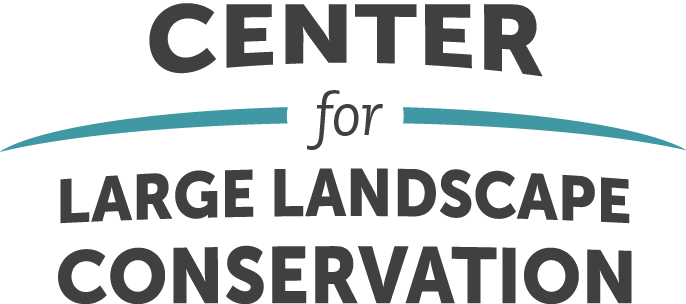The Center for Large Landscape Conservation (CLLC) is a non-profit organization that works to conserve biodiversity and restore nature’s resilience to climate change by reconnecting and restoring large landscapes. The CLLC is the Secretariat of the IUCN World Commission on Protected Areas’ Connectivity Conservation Specialist Group (CCSG), which is a global network of over 1,300 experts working to promote connectivity conservation at local to international levels.
The CLLC’s work is focused on five key areas:
- Science and research: The CLLC leads science and research projects to address on-the-ground needs, from helping planners track and analyze wildlife movement to assisting communities in identifying and protecting vital landscapes.
- Policy and law: The CLLC promotes policies and laws that advance connectivity conservation by drafting legislation, provisions, and standards to advance corridors and ecological networks and guide their implementation.
- Community resilience: The CLLC works with communities to achieve their goals—from climate adaptation plans to impact assessments—in a collaborative and culturally-informed way.
- Mentorship and networking: The CLLC provides mentorship and networking opportunities for individuals and organizations working in connectivity conservation.
- Communication and outreach: The CLLC communicates the importance of connectivity conservation to a wide range of audiences, from policymakers to the general public.
The CLLC is a leading voice in the global movement to conserve large landscapes. The organization’s work is essential to protecting biodiversity, ensuring climate resilience, and creating a more sustainable future for all.
Here are some specific examples of the CLLC’s work:
- The CLLC led the development of the first-ever IUCN Guidelines for Conserving Connectivity through Ecological Networks and Corridors. These guidelines provide a roadmap for governments, organizations, and individuals to conserve connectivity and protect biodiversity.
- The CLLC is working with the governments of Kenya and Ethiopia to develop a transboundary conservation corridor that will connect two of Africa’s most important wildlife populations. The corridor will help to protect endangered species such as the Grevy’s zebra and the black rhinoceros.
- The CLLC is working with communities in the Amazon rainforest to develop sustainable land use practices that will protect the region’s unique biodiversity. The CLLC is also working to reduce the impact of illegal logging and deforestation in the Amazon.
The CLLC is a valuable partner for organizations and individuals who are working to conserve large landscapes. The organization’s expertise, resources, and network make it a powerful force for good in the world.

